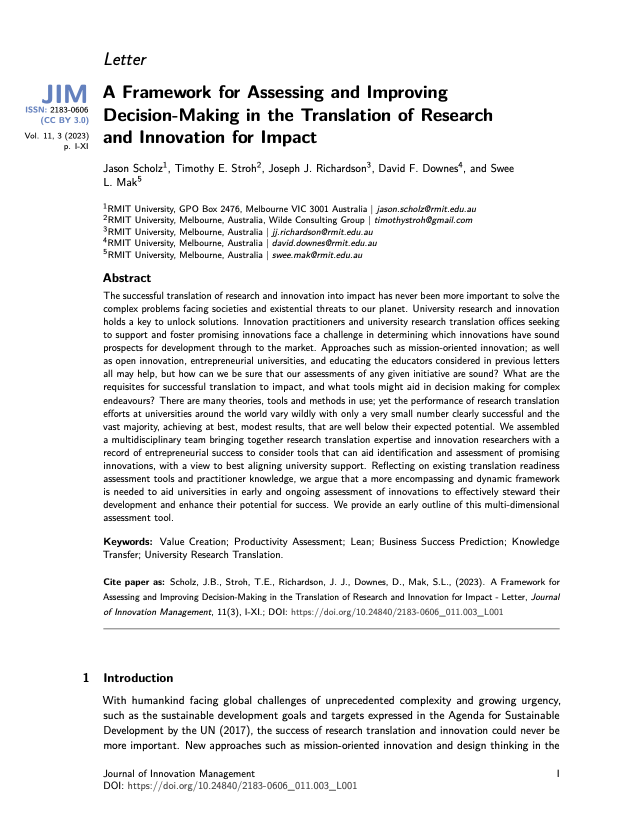A Framework for Assessing and Improving Decision-Making in the Translation of Research and Innovation for Impact
Main Article Content
Abstract
The successful translation of research and innovation into impact has never been more important to solve the complex problems facing societies and existential threats to our planet. University research and innovation holds a key to unlock solutions. Innovation practitioners and university research translation offices seeking to support and foster promising innovations face a challenge in determining which innovations have sound prospects for development through to the market. Approaches such as mission-oriented innovation; as well as open innovation, entrepreneurial universities, and educating the educators considered in previous letters all may help, but how can we be sure that our assessments of any given initiative are sound? What are the requisites for successful translation to impact, and what tools might aid in decision making for complex endeavours?
There are many theories, tools and methods in use; yet the performance of research translation efforts at universities around the world vary wildly with only a very small number clearly successful and the vast majority, achieving at best, modest results, that are well below their expected potential.
At our university, we assembled a multidisciplinary team bringing together research translation expertise and innovation researchers with a record of entrepreneurial success to consider tools that can aid identification and assessment of promising innovations, with a view to best aligning university support. Reflecting on existing translation readiness assessment tools and practitioner knowledge, we argue that a more encompassing and dynamic framework is needed to aid universities in early and ongoing assessment of innovations to effectively steward their development and enhance their potential for success. We provide an early outline of this multi-dimensional assessment tool.
Article Details
Authors who publish with this journal agree to the following terms:
- Authors retain copyright and grant the journal right of first publication with the work simultaneously licensed under a Creative Commons Attribution License that allows others to share the work with an acknowledgement of the work's authorship and initial publication in this journal.
- Authors are able to enter into separate, additional contractual arrangements for the non-exclusive distribution of the journal's published version of the work (e.g., post it to an institutional repository or publish it in a book), with an acknowledgement of its initial publication in this journal.
- Authors are permitted and encouraged to post their work online (e.g., in institutional repositories or on their website) prior to and during the submission process, as it can lead to productive exchanges, as well as earlier and greater citation of published work (See The Effect of Open Access).

